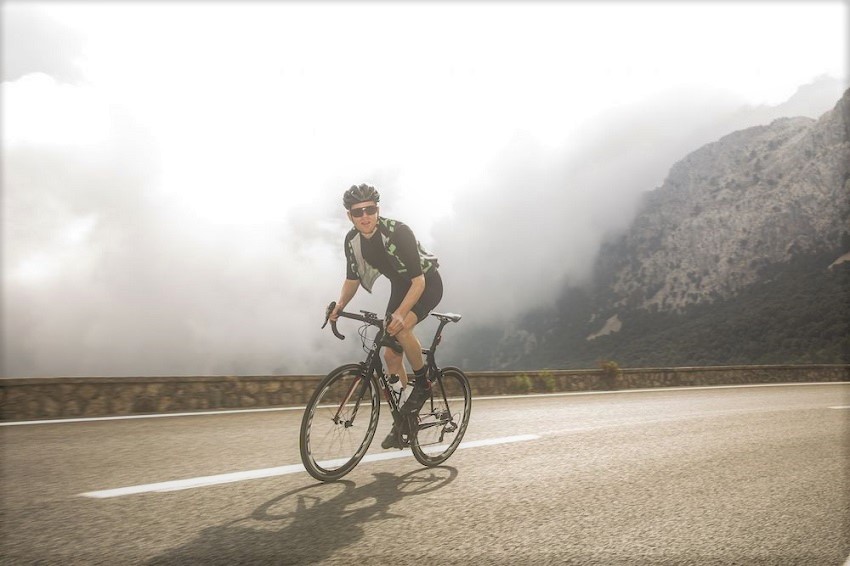
When we talk about nutrition in cycling, many of us are still tied to the stereotypes of pasta in white at 5 am before the race. In reality, things (and knowledge) have evolved in recent years. One of the most controversial issues is that of protein intake for endurance athletes. In this article, we will go to see if the cyclist needs protein, what type and in what quantities.
The role of proteins in physical endurance activity
Protein is a macronutrient that is essential for the body to function. It is found in many foods, including meats, dairy products, and plant-based products. Protein is necessary for repairing tissue, building muscle, and maintaining a healthy immune system. Some people believe that cyclists need more protein than non-cyclists because cycling can be a strenuous exercise. Keep reading https://www.catwalkqueen.tv/are-aluminum-bikes-good/
Cycling proteins
Training is a stressor which produces a stress response in the body, called super compensation. Accelerating the super compensation times and reducing the amount of hours required to recover from training is an important strategy for the cyclist who wants to train consistently and with ever increasing volumes and intensity. Let’s discover Mongoose mountainbike.
During physical endurance activity, we have a depletion of muscle glycogen, alternation of hormonal balance, accelerated oxygen consumption and alterations in the composition of bones and muscles. In the 40 minutes following a workout, what is called the “metabolic window” opens, a period of time in which the body is extremely receptive to the nutrients we introduce. Many cyclists (and endurance athletes). They focus above all on replenishing carbohydrates and hydration but omitting proteins.
How much protein do cyclists need?
A good rule of thumb is 1 gram of protein per kilogram of lean body mass. For example, a 150 pound person will need 150 grams of protein daily. They might need more if they are very active.
The current recommendation is 0.8 grams of protein per kilogram of body weight daily. If you are trying to lose weight, you might want to cut back on protein since it is often higher in calories than fat. If you are a very active cyclist, you might need to eat more protein.
Small bricks
Proteins are molecules made up of chains of amino acids, which make up the structure of our body: muscles, tendons, ligaments, bones. Proteins are like the “building blocks” that keep our bodies upright. During physical activity, we have a degradation of the amino acids present in the body (a phenomenon called “catabolism”).
In the study “Beyond muscle hypertrophy: why dietary protein is important for endurance athletes” (NRC, 2014), it is mentioned that the more the stores of muscle and liver glycogen are depleted, the greater the contribution of amino acids to the energetic support of the physical activity. For example, leucine (one of the most important amino acids) can be oxidized at a rate of 8 mg/kg/hour for an athlete who is training at 60% of VO2max (an intensity that is anything but extreme).
Protein consumption during physical endurance activity is therefore present and it is important for the cyclist to take care to also replenish a portion of protein after training.
Benefits of protein for the cyclist
One of the most common conceptual errors among cyclists is to consider themselves “lungs with legs,” that is, lungs with legs. It is an approach that leads us to think that to be a cyclist or a runner. One must train exclusively in an aerobic regime and focus only on workouts that improve cardiovascular fitness.
Each time we pedal, instead, we are performing a movement that requires an expression of force, called resistant force, which is equal to 20-30% of the maximum contractile capacity of our muscles. This aspect, therefore, causes an overload in the muscles, with alteration of the protein structure of the muscle fibers.
Protein cyclist
We are convinced that our body is immutable, but it is not: our muscles are never the same. Their constituent proteins are continually replaced with new, “younger,” and more functional proteins. This turnover, called protein turnover, can have a negative balance (and in this case, we will encounter atrophy or the loss of muscle tropism) or positive (where we will have hypertrophy, i.e., an increase in muscle tropism).
Taking the right amount of protein allows you to promote muscle protein turnover, replace oxidized amino acids during physical activity and improve plasticity, recovery and muscle tropism. Post-workout protein ingestion produces an increase in protein synthesis, which remains elevated for up to 72 hours after physical activity, promoting muscle regeneration and remodeling.
The cyclist’s protein requirement
Historically, the indications from official bodies regarding protein intake ranged from 0.8gr / kg/day for a sedentary to 3gr / kg/day for power sports athletes, arguing that an endurance athlete had to be in half. In the study “Protein requirements for endurance athletes” (Nutrition Journal, 2004), it is stated that for an endurance sportsman, the protein intake should be at least 80% -100% more than that of a sedentary.
What kind of protein does a cyclist need?
Another topic discussed is the quality of proteins. It is said that animal proteins (meat, milk, cheese, eggs) are more noble than vegetable ones (walnuts, almonds, legumes) since they have a more varied amino acid pool. This is true, but it must then be adapted to our everyday reality.
It is difficult to run into a chronic protein deficiency, as in a developing country. This ensures that the minimum level of essential amino acids (that is, that our body cannot produce) is always satisfied, so the source of the protein surplus to support endurance activities is indifferent. Essentially, whether the proteins we ingest are of animal or vegetable origin makes little difference.
Cycling is a good way to get a little extra protein into your diet. But it isn’t the best way, and it can be dangerous if you don’t know what you’re doing. Don’t try to cycle your way to muscle mass! Eat a balanced diet containing all the protein you need. If you don’t have time to eat, drink some milk or take a protein supplement. Don’t be tempted by the latest fad diets.
You can get plenty of protein from vegetables and fruits, especially beans and lentils. Or you can take a multivitamin and protein supplement if you are vegetarian or vegan.
